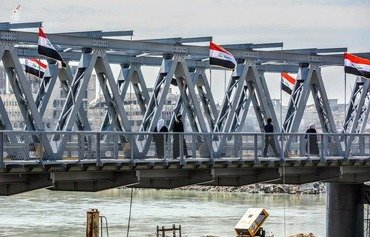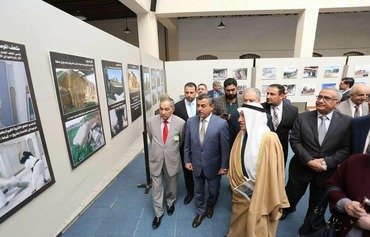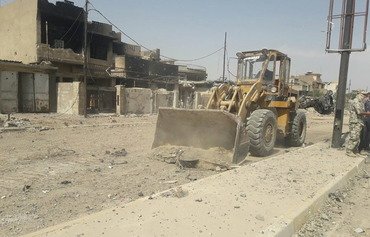Rebuilding the parts of Mosul destroyed by the "Islamic State of Iraq and the Levant" (ISIL) will be one of the biggest challenges the Iraqi government will face in the near future, officials told Diyaruna.
As Iraqi forces push into the Ninawa province city, a reconstruction plan is already being devised for the post-liberation phase, Ministry of Planning spokesman Abdul Zahra al-Hindawi told Diyaruna.
The plan focuses as a first step on the consolidation of all national efforts to support stability in the city.
"In order to achieve that objective, all government institutions, in co-operation with international relief organisations, will seek to urgently resettle residents who had fled from their areas of origin," he said.
Critical drinking water, electricity, health and education services also will be restored, he said.
"At a later stage of the plan, the government will work to complete the investment projects in public services sectors such as roads, bridges, schools and energy which were suspended or damaged at the hands of terrorists," he said.
"We had about 4,500 large investment projects in all provinces in the country, including Ninawa," he said, noting that some had been close to completion when they were disrupted by ISIL's incursion and subsequent occupation.
"In order to resume these projects, we need long-term solutions and exceptional national and international efforts," al-Hindawi said.
Possible solutions include financing these projects on credit, putting them up for investment or setting up public/private sector partnerships.
Billions of dollars in damages
ISIL's damage and destruction of infrastructure and public property will cost Iraq billions of dollars to repair, al-Hindawi said.
Since June 2014, these losses have amounted to about $38 billion, according to a Ministry of Planning survey published earlier this year.
The survey included all provinces affected by terrorism, except Ninawa, he said.
Iraq has so far received more than $2 billion in international assistance following a July 20th donor conference in Washington D.C., al-Hindawi said, expressing his hope that a similar conference will be held at the beginning of next year.
Iraq needs international support for the reconstruction of Mosul and other cities affected by ISIL, said Mudher Mohammed Saleh, economic adviser to the Prime Minister.
"We need at least $20 billion to build what was destroyed by ISIL, especially service projects that affect the lives of citizens directly," he told Diyaruna.
"We hope the international community will take more positive steps towards helping Iraq rebuild, through providing it with financial support, technical expertise and consulting services," he said.
He expressed his hope that once ISIL is eliminated from Iraq, the countries battling the group will continue to support Iraq by contributing to its reconstruction and development efforts.
The challenge of reconstructing Iraq rests on the shoulders of the international community as well as Iraq, said economist Majid al-Sowari, noting that the fight against ISIL is a global war that does not affect just one country.
He called on the Iraqi government to adopt legislation that combats corruption in order to "reassure donor countries and organisations that the funds provided are being allocated properly".
"We have to establish an integrated economic and financial environment to manage and monitor the allocation of grants towards reconstruction projects," he told Diyaruna.

![A bulldozer removes rubble from al-Qayyarah oil fields south of Mosul. [Photo courtesy of Ninawa provincial council]](/cnmi_di/images/2016/12/13/6761-Iraq-Qayyara-bulldozer-600_384.jpg)






